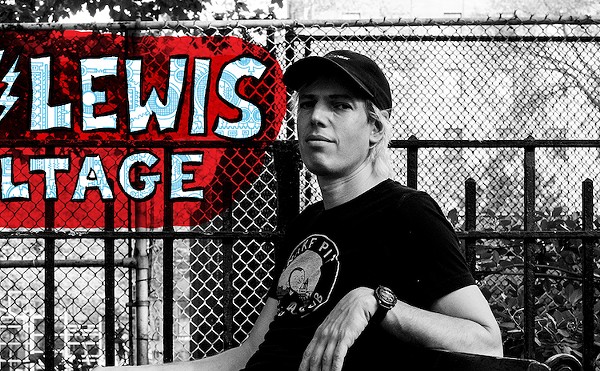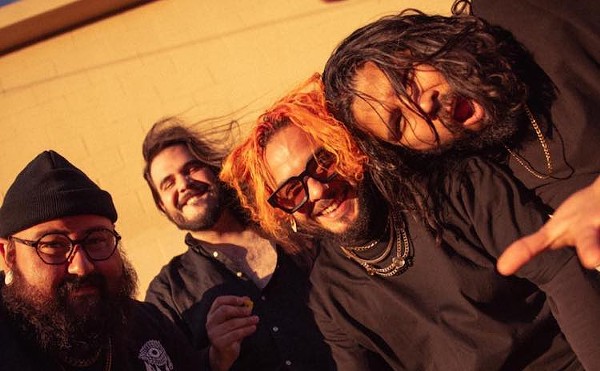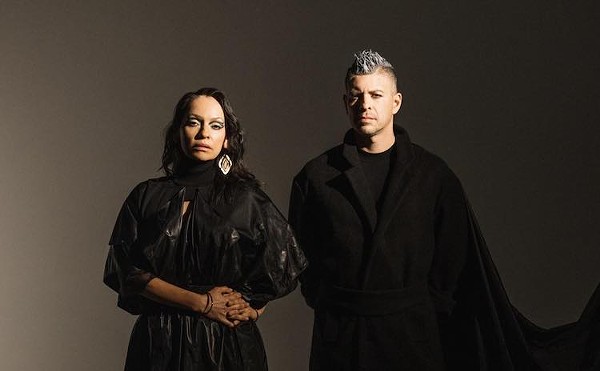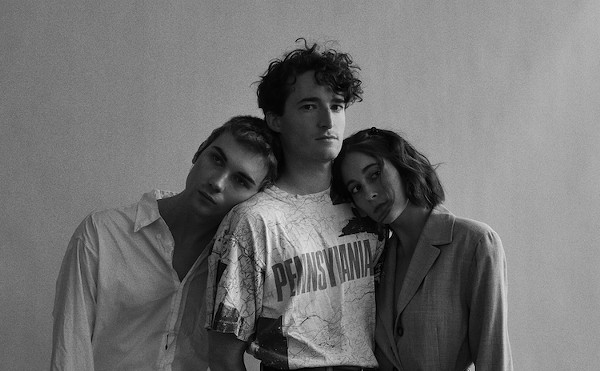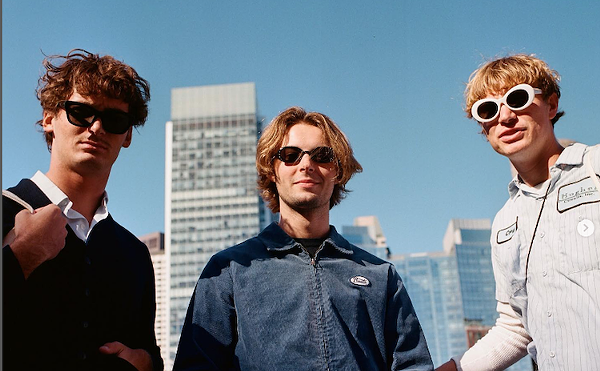Carl Maurry III was in a rebellious mood when he added his name to the crowded hip-hop market. The odds of a rapper gaining national attention, considering the sheer number of hopefuls in the field, let alone in still-budding Orlando, would seem daunting to all but the most wide-eyed. Still, Maurry had an advantage: He didn't care about how it's always been done. That way didn't work, and if he was going to escape the road he was on, he had to find a new path. Interestingly, it led him straight to the predominantly white, drug-fueled love-in style of dance music known as rave.
"One day me and my homeboys were just playing around with some names, and they were like ‘Man, you should call yourself West 50," says Maurry of the west side of Colonial Drive. He later shortened it to Wes Fif, and started exploring the world of hustling mix tapes. As Fif saw it, that would be his out from a life that surely would have landed him in jail. Like so many hip-hoppers, Fif was dealing in drugs and petty crime to make his way. His parents divorced before he hit double digits, an experience the 21-year-old cites as a major turn in his development.
"It was one of the hardest things I've ever been through when my parents split up," he says. "When my parents were married, they used to push me. It was my daddy's dream for me to play basketball, and once they got divorced I stopped playing as a way to rebel against him. I stopped going to school, stopped going to work. Most of the time I was drawing or doing poems."
With a slight build and long hair, Fif determined he was not a good fit for prison, so he worked hard on his flow, then connected with some of the major Orlando movers and shakers, recording a labor-of-love debut that happened to include something of a revelation.
"I'm real picky about tracks," says Fif. "I don't like a lot of people's beats, so a lot of the stuff `in the studio` I was ignoring. My homeboy had some pop in his head, glow sticks and all that crazy shit. So this song came on, and he started doing a crazy-ass dance, and the beat just stuck in my head."
This stubborn song would become "Haterz Everywhere," a rave-happy, paranoid romp through a warehouse party in the Dirty South. Along with cohort B.O.B, who provides a Georgia twang on the chorus ("We got 'em goin' down for the count, lookin' at the ground"), Wes Fif managed to fall into a kind of brand-new genre — rave rap — layering a quick-paced lyrical flow on top of the ultra-rapid digital ecstasy of house and trance.
The disparate crowds that flock to rave music and to hip-hop could not be more different, yet they have a common rebellion that cannot be denied. Raves and their proponents have been under attack since the mainstream picked up on what they were doing, and Orlando in particular was singled out as part of the "problem" of these musical gatherings, which were labeled dangerous and, by some, anarchistic. It's a tag often slapped on rap concerts and albums, and that's one reason "Haterz" has become such an instant smash.
"The song is awesome," says Michigan's DJ Benzi, one of the premier mix-tape DJs in hip-hop. Benzi has made his career on periodically releasing cutting-edge remixes — he calls them "refixes" — that take a hip-hop song and set it to, well, whatever strikes his fancy. On his upcoming release, a collaboration with Lil' Wayne entitled "None Higher," Benzi claims over half the songs on the CD are not hip-hop beats. He might hear a bit of himself in "Haterz."
"I can see it blowing up nationally," says Benzi. "As far as rave-rap, I would say probably ‘My Love' `the 2006 hit single by Justin Timberlake` started it, but the whole idea is cool. Fads are fads, but I think the song will be around for a minute. It's 2007. It's about time for music to start to change."
As yet unsigned to a major label, Wes Fif has made a statement that few Orlando artists can match. From profiles in national magazines to meetings with, according to Fif's manager Dapa, Eminem and Atlantic Records, it's apparent that Wes Fif's rebellious phase paid off high.
"Just like anything, if a hundred beats come out like this, it will get old, but it's nice for Wes Fif to get on it early and have the first hit," says Benzi.
Being the first in anything is new territory for the Orlando hip-hop scene, so often characterized as tragically squeezed in between crunk Atlanta and big-pimping Miami, and Fif intends to use his success as a showcase for his hometown.
"This is where I'm from, so this is where it's gonna be," he says. "A lot of people say the reason Orlando can't come up as a mainstream city is because they don't have their own sound. I don't think there is a sound for this city, and that's okay. It's just people making good music."
[email protected]



